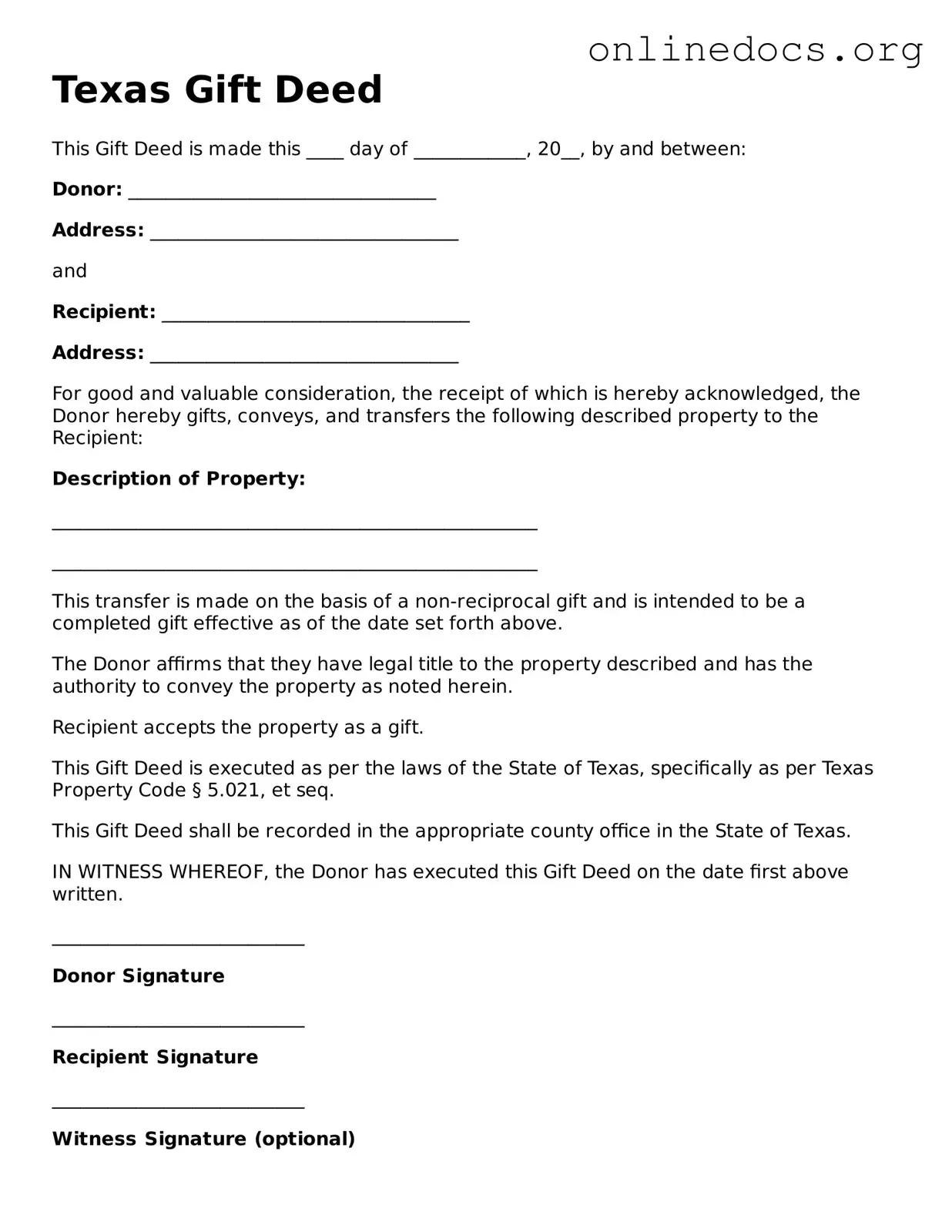A Gift Deed is often compared to a Warranty Deed. Both documents serve the purpose of transferring property ownership, but they do so in different ways. A Warranty Deed guarantees that the seller holds clear title to the property and has the right to sell it. This means that the buyer is protected against any future claims on the property. In contrast, a Gift Deed does not offer such guarantees; it simply transfers ownership without any exchange of money or assurances regarding the property's title. This distinction is crucial for those considering how to transfer property to loved ones.
Another document similar to a Gift Deed is a Quitclaim Deed. A Quitclaim Deed transfers whatever interest the grantor has in the property without making any promises about the quality of that interest. Unlike a Warranty Deed, it does not provide any guarantees or protections for the recipient. This makes it a quicker and simpler option for transferring property, but it also means the recipient takes on more risk. A Gift Deed, while also lacking warranties, is often used in familial situations where trust exists between the parties.
A Transfer on Death Deed (TOD) is another document that shares similarities with a Gift Deed. This deed allows an individual to transfer property to a beneficiary upon their death, without going through probate. While a Gift Deed involves an immediate transfer of ownership, a TOD deed ensures that the property remains with the original owner until their passing. This can be beneficial for individuals who want to maintain control over their property during their lifetime but wish to designate a recipient for it afterward.
A Special Warranty Deed is also comparable to a Gift Deed. This type of deed provides limited warranties; the seller guarantees that they have not caused any issues with the title during their ownership but does not cover any problems that may have existed before their ownership. This contrasts with a Gift Deed, which does not offer any warranties at all. Both documents facilitate the transfer of property, but the level of protection offered to the recipient varies significantly.
When considering the purchase or sale of a trailer in California, it is essential to utilize the appropriate documentation to clarify the terms of the transaction. A critical component of this process is the Trailer Bill of Sale form, which ensures a smooth transfer of ownership and serves as proof of the agreement between the buyer and seller. For more detailed information, you can access resources such as legalformspdf.com.
A Bargain and Sale Deed can also be likened to a Gift Deed. This type of deed conveys property without any warranties against encumbrances. It implies that the seller has the right to sell the property but does not guarantee that the title is clear. In this sense, it shares some similarities with a Gift Deed, as both do not provide extensive protections for the new owner. However, a Bargain and Sale Deed typically involves some form of consideration, whereas a Gift Deed is specifically for transferring property without any payment.
Lastly, a Lease Agreement can be viewed as a related document in certain contexts. While not a deed, a Lease Agreement allows for the temporary transfer of property use, often involving a rental payment. In some cases, property owners may gift a leasehold interest to a family member or friend, similar to how a Gift Deed transfers ownership. However, the key difference lies in the nature of the transfer; a Lease Agreement does not convey ownership but rather the right to use the property for a specified period.
